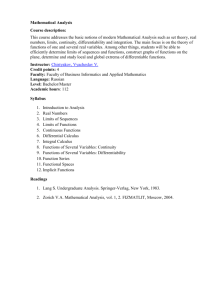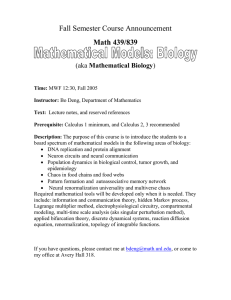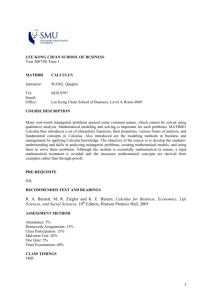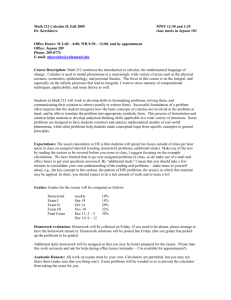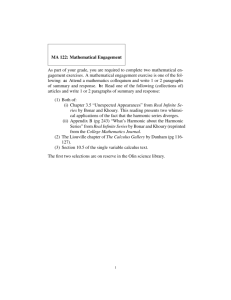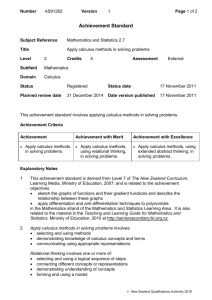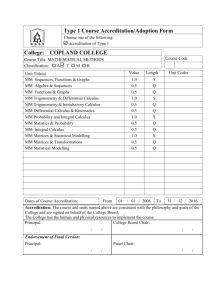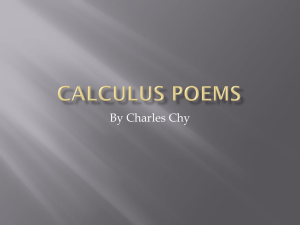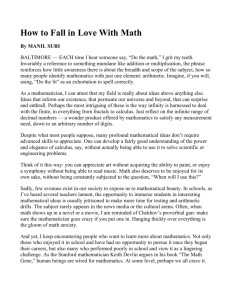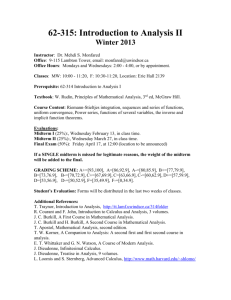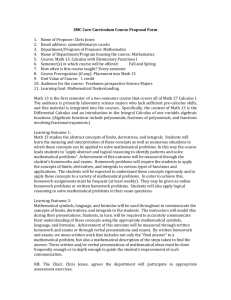Specification of the course for the Book of courses
advertisement
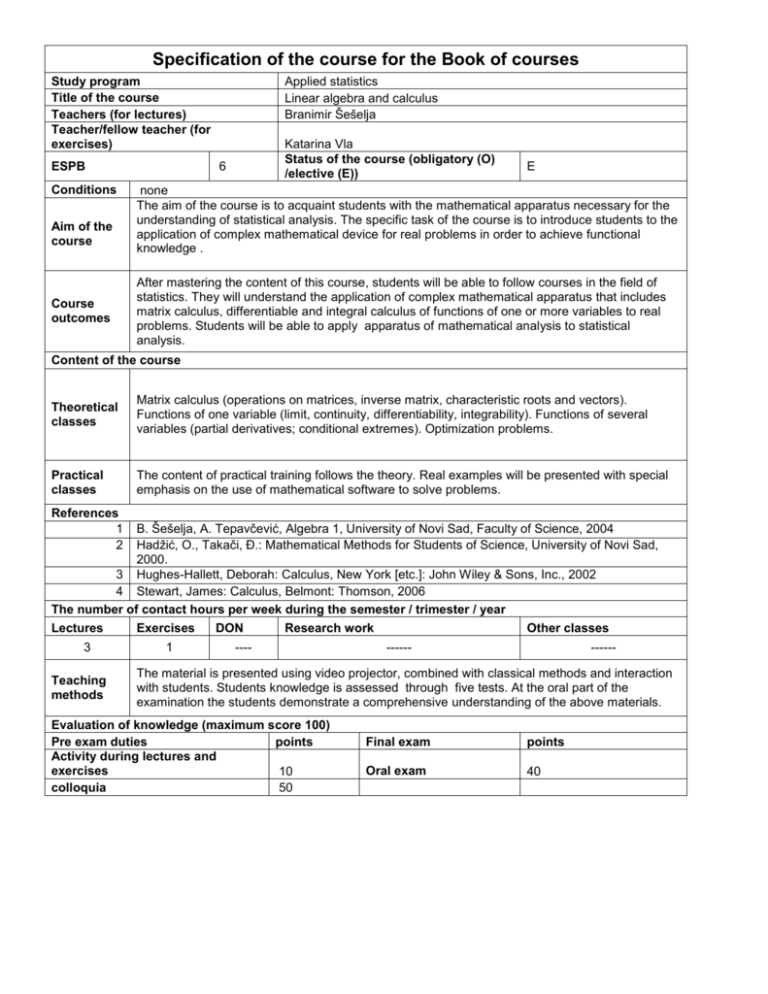
Specification of the course for the Book of courses Study program Title of the course Teachers (for lectures) Teacher/fellow teacher (for exercises) ESPB Conditions Aim of the course Course outcomes Applied statistics Linear algebra and calculus Branimir Šešelja Katarina Vla Status of the course (obligatory (O) /elective (E)) 6 E none The aim of the course is to acquaint students with the mathematical apparatus necessary for the understanding of statistical analysis. The specific task of the course is to introduce students to the application of complex mathematical device for real problems in order to achieve functional knowledge . After mastering the content of this course, students will be able to follow courses in the field of statistics. They will understand the application of complex mathematical apparatus that includes matrix calculus, differentiable and integral calculus of functions of one or more variables to real problems. Students will be able to apply apparatus of mathematical analysis to statistical analysis. Content of the course Theoretical classes Matrix calculus (operations on matrices, inverse matrix, characteristic roots and vectors). Functions of one variable (limit, continuity, differentiability, integrability). Functions of several variables (partial derivatives; conditional extremes). Optimization problems. Practical classes The content of practical training follows the theory. Real examples will be presented with special emphasis on the use of mathematical software to solve problems. References 1 2 B. Šešelja, A. Tepavčević, Algebra 1, University of Novi Sad, Faculty of Science, 2004 Hadžić, O., Takači, Đ.: Mathematical Methods for Students of Science, University of Novi Sad, 2000. 3 Hughes-Hallett, Deborah: Calculus, New York [etc.]: John Wiley & Sons, Inc., 2002 4 Stewart, James: Calculus, Belmont: Thomson, 2006 The number of contact hours per week during the semester / trimester / year Lectures Exercises DON Research work Other classes 3 Teaching methods 1 ---- ------ ------ The material is presented using video projector, combined with classical methods and interaction with students. Students knowledge is assessed through five tests. At the oral part of the examination the students demonstrate a comprehensive understanding of the above materials. Evaluation of knowledge (maximum score 100) Pre exam duties points Activity during lectures and exercises 10 colloquia 50 Final exam points Oral exam 40

